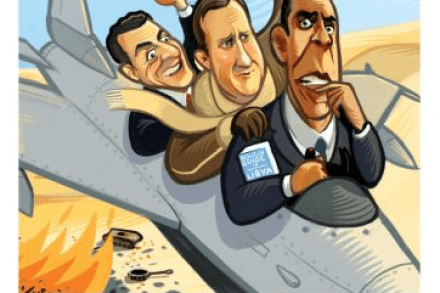The joy of diversion
“We should have more history on the programme,” said Evan Davis at the end of yesterday’s episode of R4’s Today. “I learned a lot from that.” He had just been interviewing Peter Jones (listen here) about a piece in this week’s Spectator about the two Libyas — a split which may emerge as a result of the fly zone. Tripoli and Benghazi were originally part of two different worlds: Roman and Greek. For these coastal towns, north-south sea routes were more important than east-west road routes (which 500 miles of desert made pretty much impossible). Just as the Kurds managed independence in the north of Iraq after the 1992 No
















